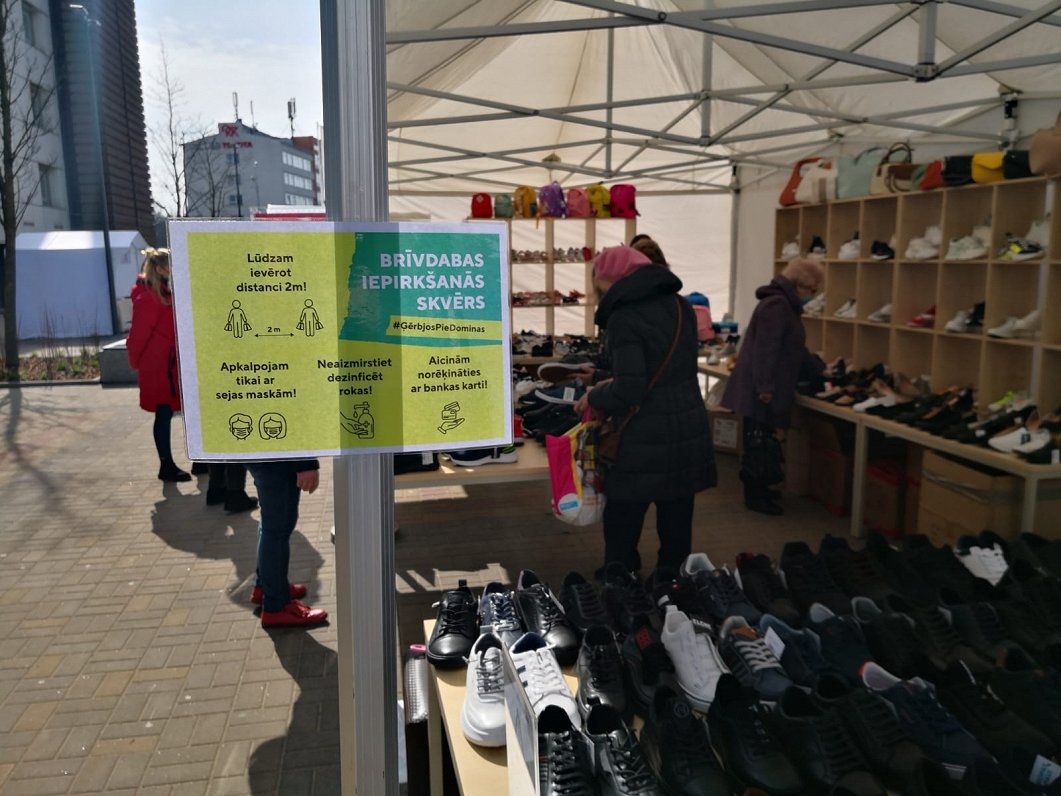During the pandemic, new sellers have joined the permanent or regular markets that have been there for several years. One after another they told Latvian Radio that there are no bif profits to be made in street trade, do at least represent a chance for commercial activity.
The number of sellers at one spot must not exceed twenty, and the flow of visitors is also limited. Māra Narcise has been organizing the Riga design market for four years. She acknowledged that the market was more like a good deed than a viable long-term business proposition at this time.
“If it was not a thing from my heart and I would not like to help traders, and in general Latvian design and creative businesses, it would be a disadvantage from the perspective of a business plan. That requires big investments. It's not a business right now. We're doing this to look more at the future,” Narcise said.
The Baltic Space design shop also moved to an outdoor tent outside the Domina Shopping mall. The shop's owner, Natālija Jermolajeva, said it took such a step because the business doesn't have a big parent company that can take care of it in times of crisis.
“Organizers and participants participate so that potential customers don't forget about the brand in question, that there remains such [a brand]. There is no big business, it's like a step of despair. We are grateful to the operators of the market because they are working 'on zeroes'. They don't earn anything. It's charity on their part,” Jermolajeva said.
Dina Bunce, chief executive of Domina Shopping, said that the market was just a little help for renters to survive.
Bunce explained: “Really, that's the minimum that tenants can do right now. We go on. Shoppers are happy, they come shopping every day. The turnover that stores are achieving these days is a bit of a boost that they can further purchase a commodity or sell off a prepared spring item. This certainly cannot be called basic business and basic turnover. This is really a patch.”
Economists, meanwhile, see the street-trading boom as a temporary phenomenon. Economist Pēteris Strautiņš of Luminor said that while there are restrictions there will be street trading.
"It's not a fulfilled life. It's just stitching together. Until there's a chance to trade in more comfort and safety then people will go back. No technological regress will happen. No replacing the phone with pigeon post. I don't know what to compare it to. There was a lot of trade in Latvia 20 years ago in this way, because the country was poor and could not afford to build malls," Strautins said.
Citadele bank economist Mārtiņš Āboliņš also said that street trading was an adaptation to its time: "I see it as a short-term phenomenon. In the longer term, I see that we will buy goods much more on the Internet. What we see, according to our customers' data, is that the turnover rate, the spending on goods, is quite high. Even higher than it was in the fall. It is clear that entrepreneurs are trying to use this demand in some way, and then looking for the different ways that can work."
Āboliņš pointed out that the current situation in the trading sector is not homogeneous, there is a distortion of internal competition.






























